In just two years, ChatGPT has managed to do something no company has done in the last 20 years: present a viable challenge to Google.
There’s evidence that people are using it instead of traditional search in an increasing number of cases.
For example, ChatGPT’s traffic recently surpassed Bing, and its referral traffic has been growing by triple digits.
Yet, Google’s search volumes and market share appear to be unaffected. Is it a question of scale, and is ChatGPT’s impact still too small to register? If so, perhaps not for much longer
There have been several consumer surveys asking about current perceptions of search quality and others exploring AI adoption. But, there haven’t been any studies that looked closely into whether AI impacts consumer attitudes toward Google and their usage of Search.
So, we decided to create one to answer a range of direct questions we were curious to know the answers to:
- Is it easier or harder to find what you’re looking for on Google vs. three years ago?
- What’s your “go-to” AI tool, and how often do you use it?
- What do you like about AI?
- Are AI applications and search engines basically interchangeable or different?
- Has using AI changed how much you use Google?
- Does AI or search provide a better experience (across multiple categories)?
- If you had to choose only one tool (Search or AI), what would it be?
- Will AI replace traditional search engines in the next three years?
My research program, Dialog, asked these and numerous other questions to an online consumer panel last month. We qualified potential respondents using two criteria:
- They had to be at least weekly search users.
- They must have used at least one AI application “ever” (on a list of 11).
We recruited more than 2,200 respondents and disqualified over half of them, most often because they didn’t answer yes to the AI screening question.
In the end, we had 1,000 U.S. respondents who roughly mirrored U.S. Census data.
Key Survey Findings
Here are some of the survey’s major findings:
- While Google is dominant, consumers use multiple sites to make purchase decisions.
- 44% of U.S. adults have used AI applications at least once (100% of respondents had).
- 77% of survey respondents said it had become easier to find things on Google.
- 57% use AI daily; roughly half of them use it multiple times a day.
- 49% see AI and search as essentially interchangeable.
- 67% think AI will likely replace traditional search engines within three years.
Search Is Fragmenting
It’s important to point out that the often binary discussion of Search vs. AI misses the fact that people have been using numerous other sites for search and discovery for some time.
Some people might be surprised, for example, that a majority of U.S. adults on TikTok are looking for product reviews and recommendations.
Dialog’s survey suggests that people routinely use multiple sites to conduct pre-purchase research, though Google is the most widely used.
The precise percentages are less important than the fact that so many sites were named.
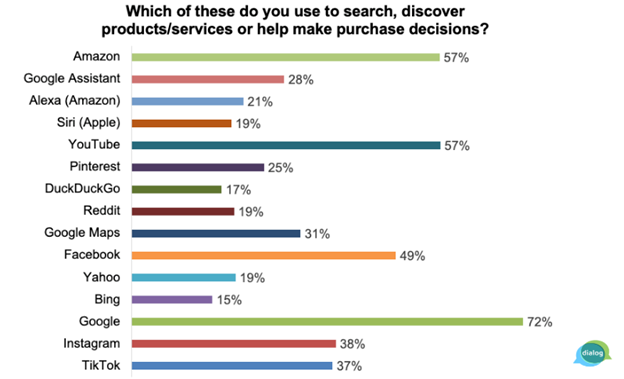 Image from author, December 2024
Image from author, December 2024
Search Today Is ‘Much Easier’
The general consensus in the SEO community and tech press is that Google’s search quality has declined for several years.
If you don’t believe this, just Google “Is Google getting worse?” (There’s a longer debate as to why this might be.)
We fully expected consumers to express a similar sentiment. But they didn’t.
In fact, 77% said that they thought it was easier or “much easier” to find what they were looking for on Google today vs. three years ago.
While this doesn’t explicitly address search quality, it reflects a positive user experience.
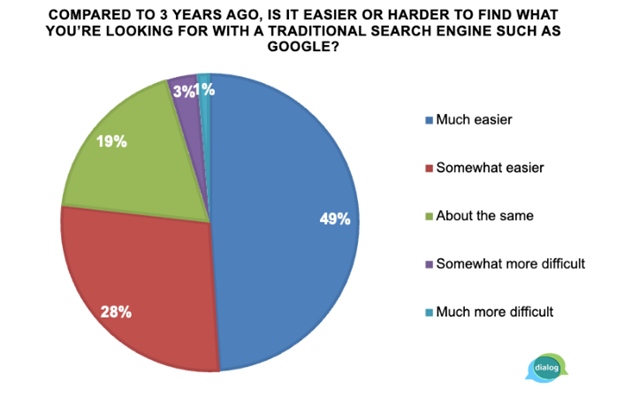 Image from author, December 2024
Image from author, December 2024
We didn’t follow up on this question, so we don’t have a good explanation for the finding.
One potential theory is that much of search activity today is brand-related or navigational, which Google does a good job with.
Another theory is that users have become more capable searchers. But neither is fully persuasive.
Search And AI Are ‘Interchangeable’
As mentioned, we disqualified potential respondents who said they’d never used an AI application.
Among our sample, however, there were very few infrequent AI users; 92% said they used AI at least weekly, and 57% were daily users, with a substantial minority using it multiple times a day.
ChatGPT was the dominant AI tool, although Gemini was not far behind – and these are regular searchers, with 64% using Search/Google multiple times a day.
We also wanted to understand whether consumers saw Search and AI as similar tools or different.
Roughly half of our respondents said that Search and AI were indeed similar and that they used them in similar ways. The other half said that they were different or weren’t sure.
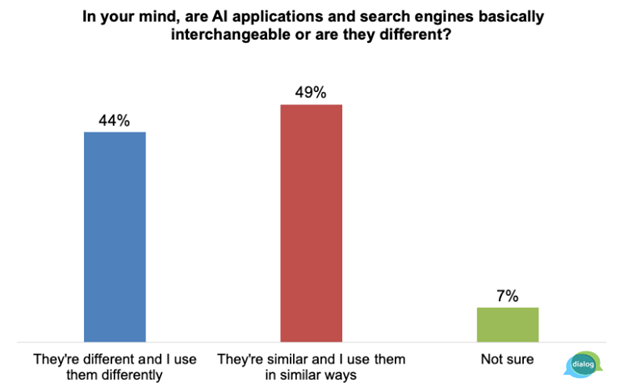 Image from author, December 2024
Image from author, December 2024
The broad significance of this finding is that a meaningful number of relatively heavy search users are potentially open to substituting AI (ChatGPT) for Google.
Beyond this, our respondents said they liked many things about AI/ChatGPT:
- Ability to ask follow-up questions – 44%
- Direct answers vs. website links – 42%
- Overall quality of answers – 40%
- ‘Conversational’ interaction – 38%
- More comprehensive information – 37%
- Lack of ads – 35%
- Other (please specify) – 1%
While the majority said they found AI content trustworthy, there were still concerns about privacy and information accuracy.
Search Beats ChatGPT – Or Does It?
We asked consumers to decide whether they thought search or AI would provide a better experience and outcome across a range of content categories and use cases.
Across the board, Google/Search won. Some categories were closer than others (i.e., recipes, product research, and financial planning).
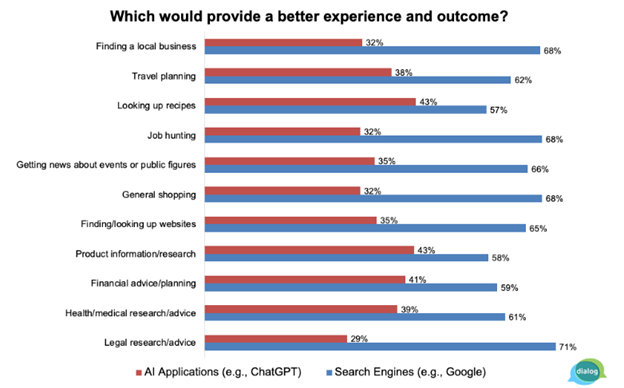 Image from author, December 2024
Image from author, December 2024
This is a Rorschach-like, “half empty-half full” chart.
If you’re rooting for Search, you can take comfort in Google’s seemingly clear victory. But, the other side of this is that a substantial number of people thought AI would do a better job.
Presenting consumers with a list of 11 Search and Search-adjacent tools, including Google, Amazon, Yahoo, Perplexity, ChatGPT, and others, we then asked, “If you had to choose only one of these for all your research and purchase decision-making needs, which would it be?”
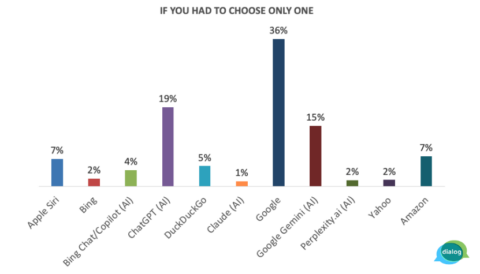 Image from author, December 2024
Image from author, December 2024
The largest group of 36% chose Google, as you would expect. ChatGPT was second, and Gemini came in third.
When you combine the ChatGPT and Gemini respondents, Google only prevails by a slim two-point margin.
Conclusion: AI Inevitability?
More than two-thirds of these consumers answered “likely” or “very likely” to the question, “Will AI replace search in the next three years?”
Only 12% said it was unlikely, and the rest weren’t sure. Again, this is a group that likes Google and thinks it delivers a better experience than AI in most cases.
Will Google be displaced in three years? Not a chance.
But, the fact that a majority believe it’s possible may impact their expectations and behavior – it also indicates their potential openness to switching. Google has been seen as invulnerable until now.
Feeling competitive pressure, Google is rapidly evolving and leaning on AI to beat back the ChatGPT threat.
In doing so, the Google SERP may increasingly come to mimic the AI user experience.
Google CEO Sundar Pichai recently proclaimed that the search experience would “continue to change profoundly in 2025.”
What we know for sure is that the next phase of search will be quite different, and that the search landscape may, in fact, be fragmenting.
Regardless, Google and AI “answer engines” will co-exist, and the customer journey will undoubtedly become even more complex.
Marketers will need to be flexible and ready. Business as usual is over.
More Resources:
- 24 Great Search Engines You Can Use Instead Of Google
- 8 ChatGPT Alternatives You Can Try In 2024
- SEO In The Age Of AI
Featured Image: Pickadook/Shutterstock
 1 week ago
4
1 week ago
4
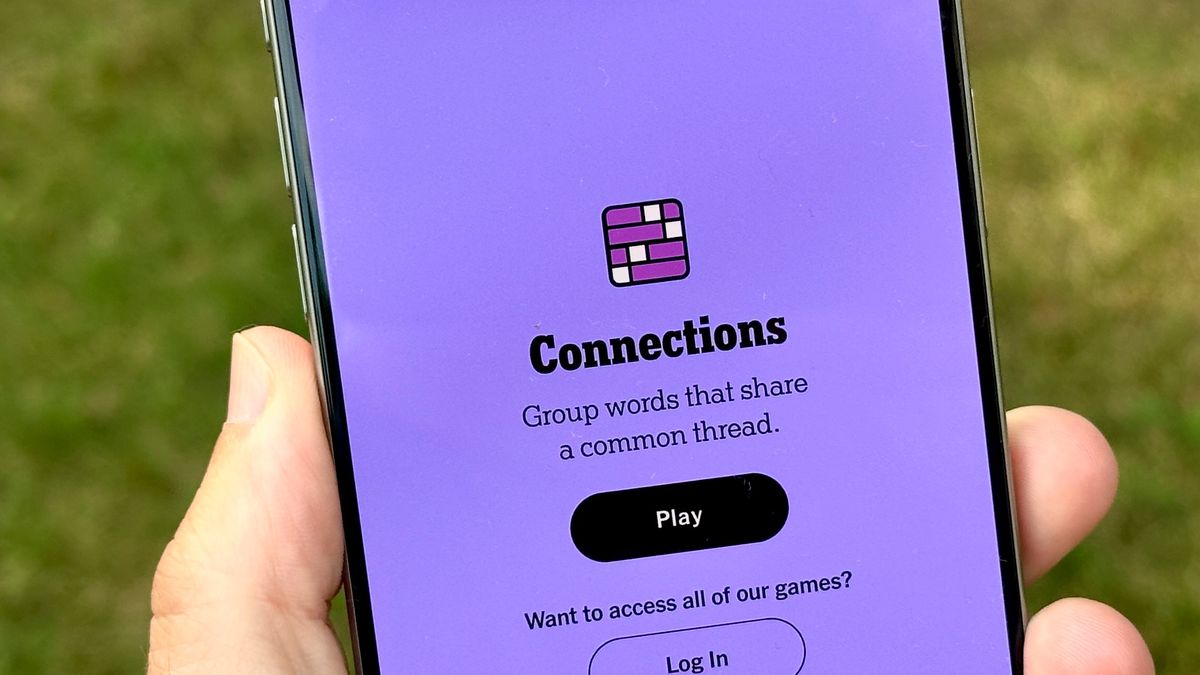
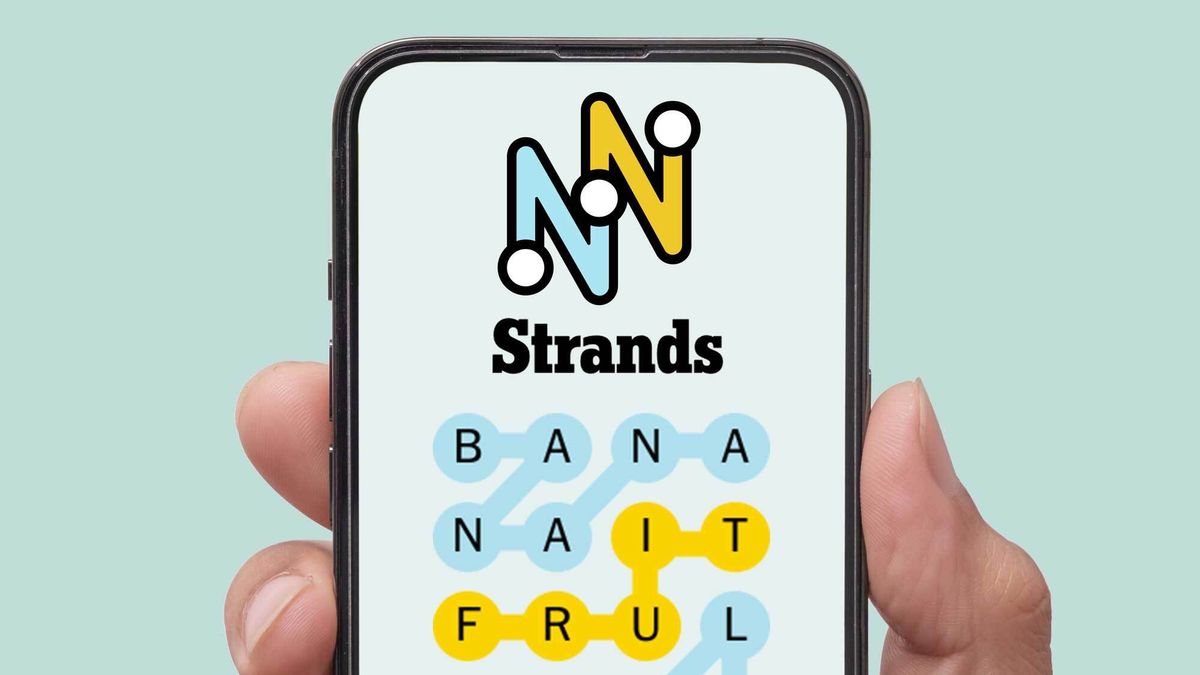




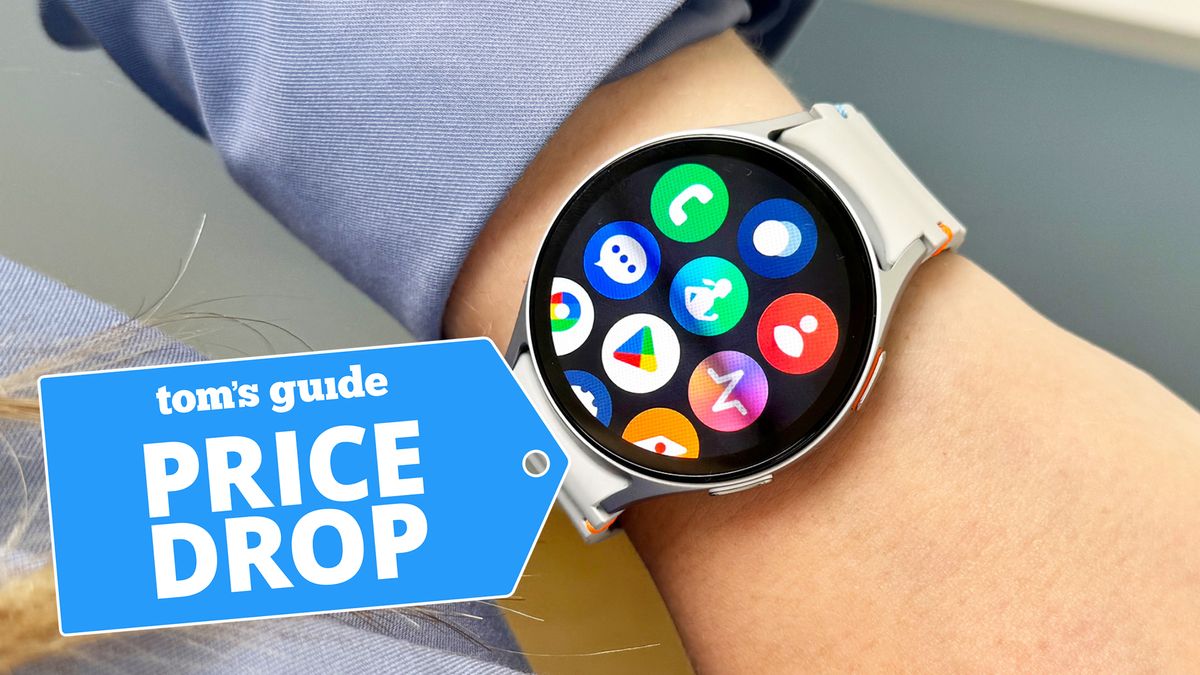

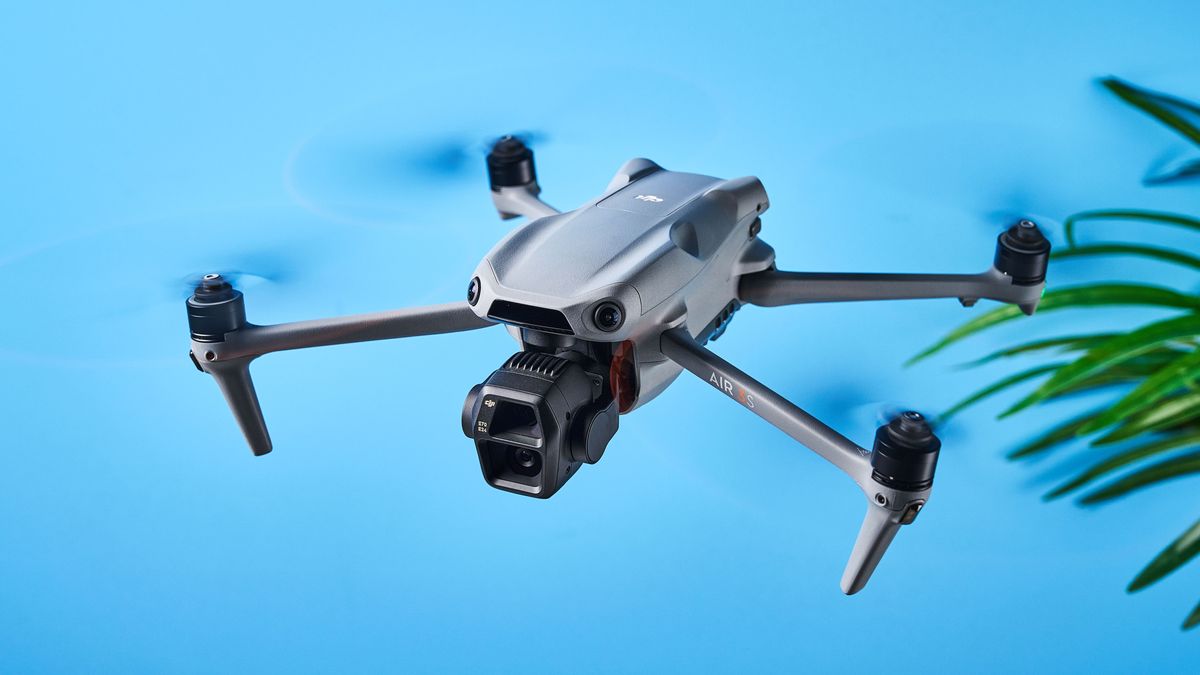


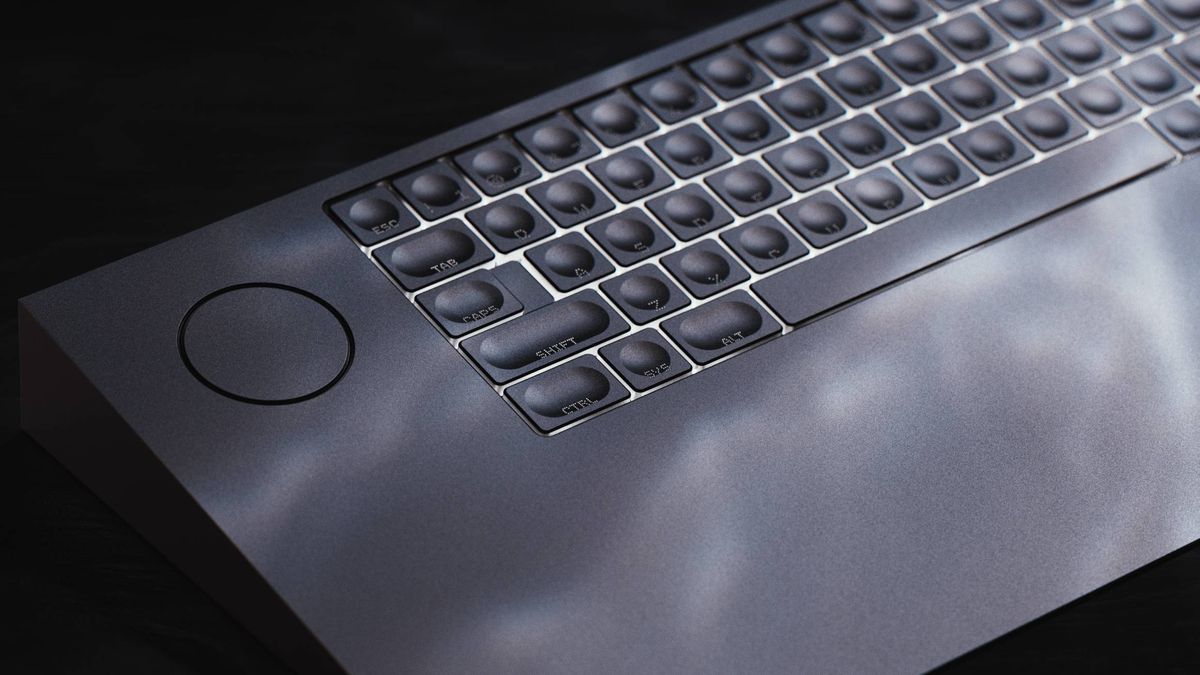








 English (US) ·
English (US) ·